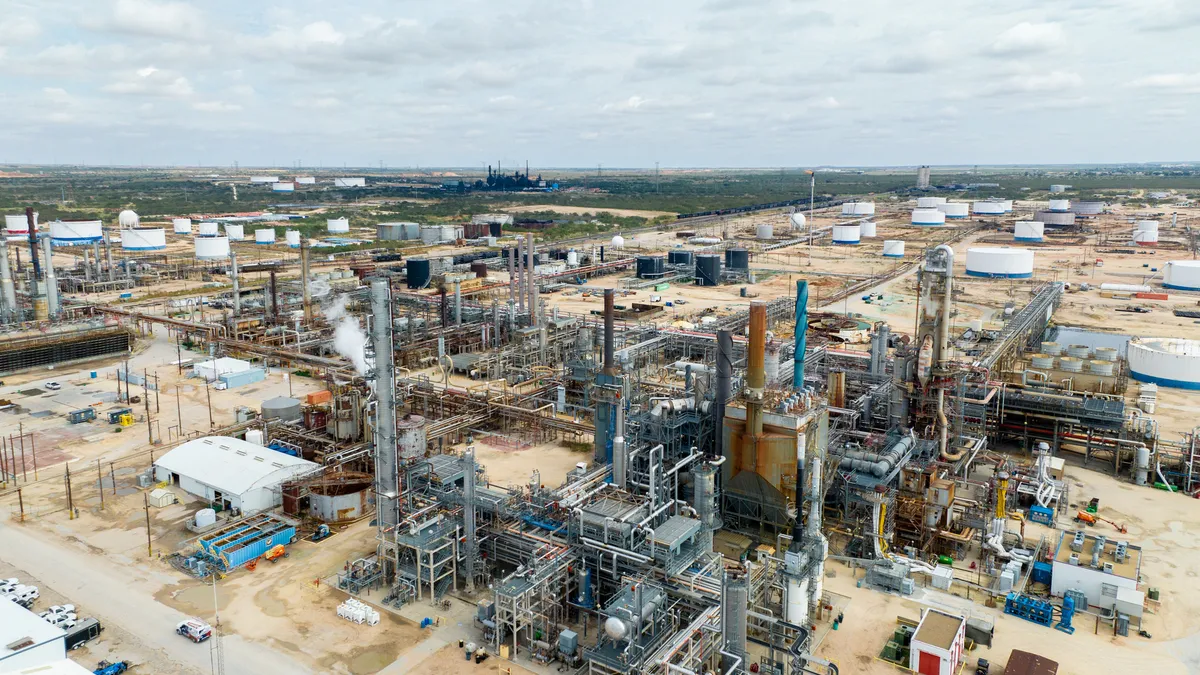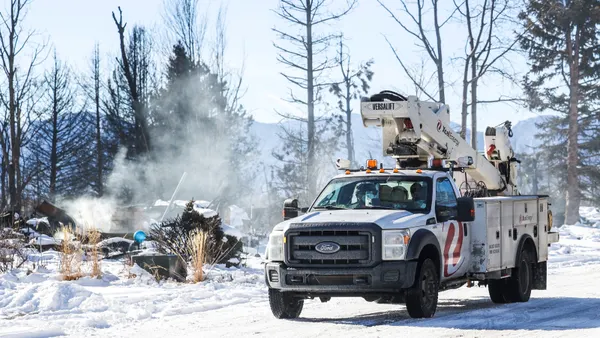Dive Brief:
- New York City Comptroller Brad Lander put forth a proposal that would stop the city’s three pension funds from future private equity and infrastructure portfolio investments in midstream and downstream fossil fuel infrastructure like pipelines and liquefied natural gas terminals, Lander announced in a blog on Tuesday.
- The prohibition would apply to New York City’s Employees’ Retirement System, Teachers’ Retirement System and Board of Education Retirement System should their pension boards approve the decision.
- The move would expand on the funds’ prior decisions to divest from fossil fuel reserve owners and exclude upstream fossil fuel investments, for activities like extraction and exploration. It would also make the city the first in the nation to bar its public pension funds from making midstream and downstream fossil fuel investments, according to the nonprofits Sierra Club and Private Equity Stakeholder Project.
Dive Insight:
The Bureau of Asset Management at the Comptroller’s office will work to research and develop the policy language for the exclusions and are expected to present it to the trustees of the pension funds in “early 2025,” according to Lander’s blog. That presentation will also include an assessment of the decision’s projected impacts and implications.
The exclusions announced Tuesday are a part of the funds’ Net Zero Implementation Plans, and Lander said in the blog that diverting future investments from such infrastructure will “help mitigate the systemic risks that climate change poses to the global economy and to New York City’s public pension funds.”
“Climate risk is financial risk, and we have a fiduciary duty to our beneficiaries to take that risk seriously as we make long-term investment decisions,” Lander said. “The impacts of the climate crisis are playing out in real time, with more frequent hurricanes, flash floods, intense heat waves, and deteriorating air quality jeopardizing our planet and our portfolios.”
The funds first approved a divestment from fossil fuel reserve holdings in their public equity portfolio in 2018 and completed that process in 2022. The boards voted to exclude upstream fossil fuel investing in their private market portfolios in 2023, the same year the net-zero implementation plans were adopted.
The funds’ net-zero plans require annual disclosure of scope 1, 2 and 3 emissions; scaled up investments in renewables and climate solutions; and engagement with portfolio companies and asset managers to reduce emissions. The funds’ holdings in energy and climate solutions have grown to $11 billion since 2021, according to the comptroller’s office. Lander introduced shareholder proposals this past spring to have major banks disclose their ratio of clean energy to fossil fuel financing. The Royal Bank of Canada, JPMorgan Chase and Citibank each agreed, while votes on the proposal failed at the other major U.S. banks.
Lander’s Oct. 22 announcement was lauded by a number of local and national climate and energy-focused nonprofits. His blog included quotes from local leaders of environmental groups including 350, New York Communities for Change and Climate Families NYC.
Sierra Club Acting Deputy Director Loren Blackford, also a New York City resident, said in a release that the funds’ new exclusions will “help address the growing role of private market investments in financing dirty fossil fuel projects and enabling major polluters that operate with little transparency.”
“With the impacts of climate change becoming ever-clearer, it's never been more urgent to stop financing the industries that drive the crisis, which threatens our economy and so many people’s retirement security,” Blackford added.
New York state’s first ever deputy comptroller, Tom Sanzillo, now the director of financial analysis for the think tank Institute for Energy Economics and Financial Analysis, said the private equity sector has been “the least transparent sector in any institutional portfolios.” Because of that lack of transparency, Sanzillo — also quoted in Lander’s blog — said the exclusions are “meaningful and prudent climate policy.”
“Lander’s action today should provide [Lander] with much needed enhanced diligence to police an industry long in need of investor oversight,” Sanzillo said. “Fossil fuel companies, be they private or public equity performers, remain a sector in secular decline.”
The move by the Lander’s office could set a precedent for other major pension funds and institutional investors, according to Private Equity Stakeholder Project Climate Director Alissa Jean Schafer. Private equity firms have to “respond to the sources of their capital” and investors should shift investments “into more sustainable and less risky sources of energy, Schafer said in a release Tuesday.”
“Today, any fossil fuel investments ultimately introduce financial, legal, and climate risk for institutional investors," Schafer said. “Private equity firms are putting communities at risk, as well as the retirement funds of everyday Americans like firefighters and teachers. Investors need to make sure private equity isn’t tying up communities’ retirement funds in risky and harmful fossil fuel industries.”












